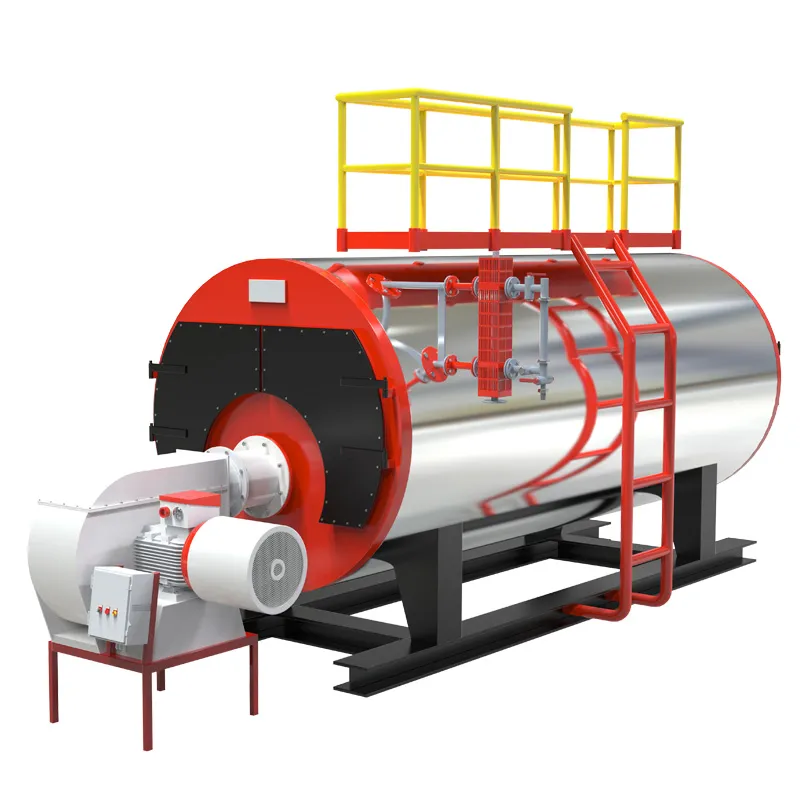
ຕ.ລ. . 18, 2024 09:30 Back to list
Cost Factors for Industrial Steam Boiler Systems and Their Pricing Analysis
Understanding Industrial Steam Boiler Prices
Industrial steam boilers are critical components in many manufacturing processes, power generation, and various industries including food processing, pharmaceuticals, and chemical production. They provide the necessary steam for heating, power generation, and processing. However, one of the key considerations when investing in a steam boiler system is its price. Understanding the factors that contribute to the cost of industrial steam boilers can help businesses make informed purchasing decisions.
Factors Influencing Prices
1. Type of Boiler There are several types of industrial steam boilers, including fire-tube boilers, water-tube boilers, and electric boilers. Each type has its advantages and disadvantages, which can influence the price. Fire-tube boilers are generally less expensive and simpler to operate, while water-tube boilers are more efficient and suitable for high-pressure applications but come at a higher cost.
2. Capacity The size and capacity of the boiler significantly affect its price. Boilers are rated by their steam output, measured in pounds per hour (PPH). Larger capacity boilers typically have higher upfront costs due to their more complex designs and the additional materials required for construction. However, they can be more economical in terms of operating costs in the long run, especially for large-scale operations.
3. Fuel Type Industrial steam boilers can operate on various fuels, including natural gas, oil, coal, and biomass. The type of fuel used affects both the initial purchase price and the ongoing operational costs. For instance, natural gas boilers may have a higher initial cost but lower operational expenses compared to coal-fired boilers. The price of fuel in the market can also impact the long-term costs associated with running the boiler.
4. Efficiency Ratings The efficiency of a steam boiler directly correlates with its operational costs. Boilers with higher efficiency ratings may come with a higher purchase price, but they provide savings over time by reducing fuel consumption. Energy-efficient models are becoming increasingly popular as industries strive to lower their carbon footprint and comply with environmental regulations.
industrial steam boiler price

5. Customization and Features Many industrial applications require specific features tailored to their processes. Custom-built boilers designed for particular applications can significantly increase initial costs. Additional features like advanced controls, automated systems, and safety devices also add to the total price. Businesses must weigh the benefits of these features against their budget constraints.
6. Regulatory Compliance Compliance with local and national regulations regarding emissions, safety standards, and operational protocols can also influence the price of industrial steam boilers. Boilers that meet stringent regulatory requirements may cost more due to the need for additional technologies and components. However, investing in compliant equipment can safeguard businesses against potential fines and operational disruptions.
7. Installation and Maintenance Costs The purchase price of the boiler is just one part of the total cost of ownership. Installation costs can vary based on the complexity of the setup and the location of the facility. Additionally, ongoing maintenance is crucial for ensuring the efficient operation of the boiler. Regular maintenance can prevent costly breakdowns and extend the life of the equipment.
Conclusion
The price of industrial steam boilers is influenced by a variety of factors including type, capacity, fuel source, efficiency, and customization options. When considering the investment in a steam boiler, businesses should not only focus on the initial purchase price but also assess the long-term operational costs, efficiency, and compliance with regulations. Doing so will help them make a more informed decision that aligns with their operational needs and budget.
In today's competitive market, investing in an efficient and reliable steam boiler can provide significant advantages in terms of productivity and cost savings. By understanding the factors that affect pricing, organizations can choose the right boiler that meets their unique requirements while optimizing their operational effectiveness. As industries continue to evolve, staying updated on the latest technologies and pricing trends in steam boiler systems will be crucial for maintaining a competitive edge.
-
Efficient Biomass Fired Hot Water Boiler | AI Heating Solution
NewsAug.01,2025
-
High-Efficiency Gas Thermal Oil Boilers | HPT Models
NewsJul.31,2025
-
Oil Fired Hot Water Boilers Sale - High Efficiency & Affordable
NewsJul.31,2025
-
High-Efficiency Commercial Oil Fired Steam Boiler for Industry
NewsJul.30,2025
-
High-Efficiency Biomass Fired Thermal Oil Boiler Solutions
NewsJul.30,2025
-
High Efficiency Gas Fired Thermal Oil Boiler for Industrial Heating
NewsJul.29,2025
Related PRODUCTS






















